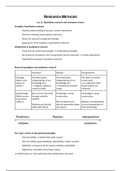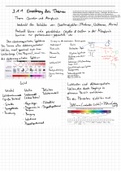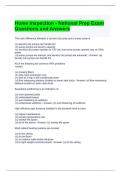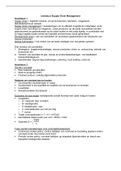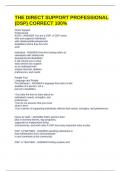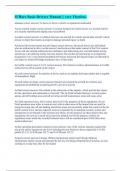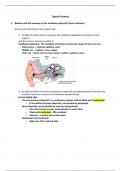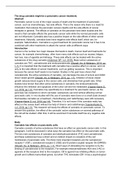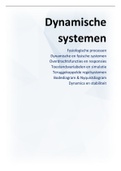Lec 11: Qualitative research and evaluation criteria
Strength of qualitative research
- Detailed understanding of process/ causal mechanisms
- Room for meaning, interpretation and voice
- Allows for surprise/ unexpected findings
(opposed to ‘front loading’ in quantitative research)
Weaknesses of qualitative research
- Small and not-randomised samples → limited generalisability
- Mo statistical calculations, but interpretation by the researcher → limited replicability
(replicability holy grail in positivist research)
Research paradigms and qualitative research
Positivism Realism Interpretivism
Ontology The world exists The world exists The world is socially
(What is the independently of our independently of our constructed
nature of knowledge of it knowledge of it → no objective truth,
reality?) → singular, objective, → material and mental social realities are
material reality reality relational
Epistemology We can know the truth Knowledge is social Knowledge is social
(What can we through scientific construction construction
know about method
reality?) Not all relations are Relations are dependent
Relations are directly directly observable (deep on our interpretation of
observable (facts) structures) them (meanings)
Positivism Realism Interpretivism
erklären verstehen
The ‘rigor’ criteria in the positivist paradigm
- Internal validity: is relationship really causal?
- External validity: generalizability, applicability in other contexts
- Reliability: consistency of the inquiry, stability, replicability
- Objectivity: neutrality, free of bias/ values
→ limited when no ‘real’ world/ law-like relationship is assumed
,INSTEAD: Guba and Lincoln (1989): Trustworthiness or the ‘parallel’ criteria
Credibility (= internal validity)
6 ways to check credibility
1. Prolonged engagement
2. Persistent observation
3. Peer debriefing
4. Negative case analysis
5. Progressive subjectivity
6. Member checks
Transferability (= external validity)
- Always relative: depends on the degree to which salient conditions overlap or match
- How: thick description of findings within context (time, place, culture)
Dependability (= reliability)
- Concerned with stability of data over time
- How: process audit → outsider reviewers understand research process, the choices that
were made
Confirmability (=objectivity)
- Assuring that data, interpretations, and outcomes of inquiries are rooted in contexts and
persons apart from the evaluator and are not simply figments of the evaluator’s imagination
- How: audit of relationship between data and outcomes by outsider reviewers
- Not really tenable in interpretivist research
Reflexivity
Good research reflective on, and transparent about
- Methodological choices
- How motivations and positionality may have shaped the research process and outcomes
- Power relations within the research
- Who has a voice?
Methodological reflexivity
- What is the impact of the research method and researchers’ choices?
- What is included or left out?
- Data is produced, not collected!
, Self-reflexivity
- Motivations: which interests, values, experiences or political commitments do I bring to the
research?
- Positionality: how does my identity affect the research process? (race/gender/class)
- Power: what is the power relationship between the researcher and the researched?
- Voice: who speaks for whom? Who has a voice?
Lec 12 - Feminist Epistemologies
Epistemology = study of knowledge and justified belief
Positivist epistemology
Scientist should be
- Objective, impartial, neutral
- Dispassionate
- Replaceable
- Disinterested truth seeker
People studied
- Data, phenomena, object of study
→ Cat observing fishbowl
Reflexive epistemology
- Scientists are part of the world they study
- Science is a social and political practice
Implications
- Impossibility of neutral standpoint
- Power relations of science
The power of science: very powerful form of discourse
The power within science: science is politics by other means, power struggle, who has a voice?
natural, harder sciences lead the softer sciences
- Who do we believe? Who do we trust?
- Who gets to say ‘research shows that…’ and convinces us?
- Who gets to have a ‘neutral’ point of view? Who gets to be ‘objective’ - and therefore
authoritative?

